There are two questions that our guides and teams frequently get from our guests visiting the vineyard.
The first one, when looking at the vines, is usually “how much wine can you get out of each vine?” (we answer that question here in case you’re looking to impress your friends during your next dinner with them). The second, that our teams get very often, if not every day, is “What is English Champagne called”?
Well, that’s both an easy and a tricky question.
The easy and most simple answer to that question is that there is no such thing as English Champagne. Why? Because Champagne is not only a region located approximately 120km / 75 miles east from Paris, it is also a controlled designation of origin. Can only be called Champagne what is grown, made and aged in the region of Champagne. “Champagne” is a specific type of sparkling wine, made in the region of Champagne.
However, the same way France produces sparkling wine called Champagne and Italy produces something called Prosecco, England does produce its own (award-winning, in our case!) sparkling wines. Around the world, you will find a few other examples of countries making sparkling wine, however England is becoming one of the most serious and qualitative alternative to champagne today.
Can vines grow anywhere?
“Vitis vinifera” vines – the ones that are used in winemaking – normally thrive in a certain temperature range and can adapt only so much to extremes climates. They grow best in temperate climates. Based on that, until today, wine production had always been limited to the areas of the globe that are both far enough from the poles and from the Equator, usually between the 30th and the 50th parallel of latitude in both the Northern and Southern Hemispheres.
For many experts and for a very long time, England was considered too close to the northern edge of that latitude range. But in the last decade, many experts have agreed to say that if the global temperature continued rising at its current pace, the U.K. may become a key wine-producing region… even equal to or excelling some regions in France.
Today, pretty much everyone agrees that the south of England benefits from a similar climate as the one that the best areas of the Champagne region have - and for the luckiest English vineyards, which is the case of Hambledon Vineyard, they even have a similar chalk soil too.
Founded in 1952, our vineyard is England’s oldest commercial vineyard, and as such, is considered by many as the leading vineyard in the awakening of the great English sparkling wines. Since 2002 when we re-planted the vineyard, our wines have gone from strength to strength, receiving consistently impressive reviews from wine critics, as well as the most incredible collection of awards. Our terroir is truly exceptional, a gift from Nature: The finest chalk soil, born sixty-five million years ago; Slopes slowly shaped under the influence of the ocean; A cool yet sunny climate, protected by the Isle of Wight.
So, what is English sparkling wine called??
Well, that’s the tricky part. Unlike Italians who have a national name for their bubbles, there is no such thing here in the U.K. Some people still call it “English Champagne” (we keep explaining that it is inaccurate - which is how confident we are about English sparkling wine and about the fact that we need to “own” our wines!) ; others describe Hambledon as their “favourite Bubbles”, and finally, well there is still the factual option of calling them “English sparkling wines”… Here, at Hambledon Vineyard, we like to call it Fizz. A typical English word that describe perfectly the beautiful bubbles in our wines. Not just any Fizz though. We like to call it "Finest English Fizz", because we know how much work, love and passion our teams put in making those wines. And that is, in a way, our English version of Champagne or, let’s put it that way, our English & local alternative to Champagne (plus, who doesn’t like local these days??) . What is the best English sparkling wine? That is a question for another article !
Cheers!




